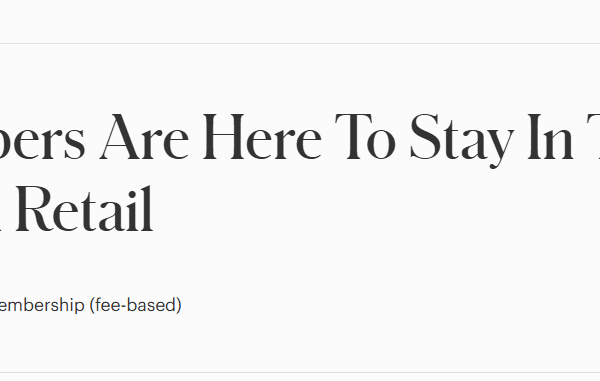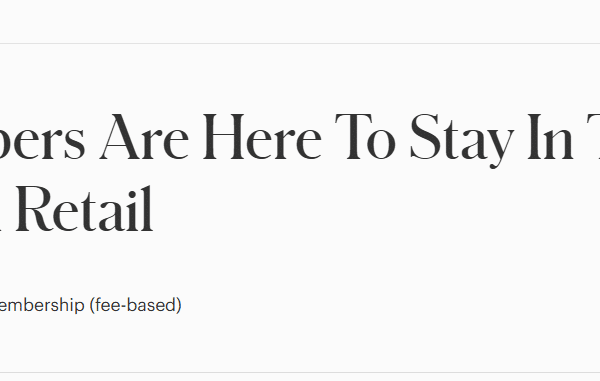
CEOs Try to Lasso Healthcare Costs, But More Needs to be Done
==
Healthcare costs continue to rise, and at a rate faster than inflation. This is a major focus for us as a healthcare provider and employer. Consistent involvement of state and national government in controlling costs, particularly for drugs, would be very helpful in controlling costs.
Dr. Edward Abraham, executive vice president for Health Affairs of the University of Miami and CEO of UHealth – the UM Health System
==
Healthcare is a disaster and the providers are challenging to deal with. It is increasing beyond comprehension. Our group are older and we all use our benefits, causing revisits of programs. In certain cases, we can certainly understand moving to a self-insured program. Need to change the ‘catastrophic’ theory to complete healthcare programs with balanced cost centers.
Jim Angleton, CEO for Aegis FinServ Corp.
==
Cleveland Clinic has been able to control healthcare costs with the implementation of our Healthy Choice Premium Discount program, in which employees are encouraged to make healthier lifestyle choices related to chronic conditions, physical activity and food selections. They are rewarded with premium discounts for participating and meeting goals. Employee accountability is a main reason for the control in our health plan spending. Over the last four years, Cleveland Clinic has actually seen healthcare deflation of approximately 1 percent per year for our self-insured employee health plan, which covers approximately 100,000 individuals in the United States. This is astounding considering the fact that healthcare inflation around us during that time has increased at a rate of anywhere between 3 and 5 percent per year. In addition, we have data that show that since 2009, our overall cost increases are about 19 percent while the national median Milliman benchmark is 61.9 percent over the same period. Nationally, more can be done to reduce healthcare costs, including providing the right care in the right place, quality improvements initiatives, and drug pricing controls.
Wael Barsoum, M.D., CEO and president of Cleveland Clinic Florida
==
The cost of healthcare rises every year, and Ocean Bank is no exception. Over the past several years, we have absorbed all increases in health insurance premiums, and we now subsidize more than 60 percent of the premiums. I would recommend other companies provide subsidies for health insurance.
Agostinho Alfonso Macedo, president and CEO of Ocean Bank
==
We just went through the exhaustive process of recalibrating our insurance for our staff. Our prices actually went down a few percentage points. However, the cost to ensure a small family is still high. Until there is a national discussion around the definition of a person’s right to healthcare vs. the right of a corporation, we will continue to struggle with this.
Bill Diggs, president, The Mourning Family Foundation
==
The health benefits cost for T-ROC and our employees have increased every year for as long as I can remember. It is a major dilemma for both the employer and the employee. Who should bear the cost of the increase? The employer, the employee, or both? In addition to the increase, we often find ourselves being faced with foregoing previously provided benefits or raising out-of-pocket deductibles in order to keep the costs down for everyone. In 2018, we had a high single digit increase that T-ROC paid. We just didn’t want to hurt our employees and reduce the amount in their paychecks. In the end, something has to change, and I am not the expert in this space to miraculously come up with a workable solution for all. As for T-ROC, we are most likely moving to a self-insured model that will provide much more transparency into our claims and allow us to be proactive on preventive care for our employees, thereby saving real dollars long-term on health benefits costs.
Brett Beveridge, CEO and founder of The Revenue Optimization Companies (T-ROC)
==
Yes, the cost of healthcare increases yearly. As a small nonprofit, it is especially difficult to find affordable plans that provide the coverage we would like to offer our employees. I believe more can be done to support companies and organizations, particularly small to medium size companies that do not have the buying power as larger organizations to negotiate rates.
Chelsea Wilkerson, CEO of Girl Scouts Tropical Florida
==
The cost of our healthcare went up, but not by as much as we expected. Ironically, this is because our previous carriers priced themselves out of the competition. What we are finding is that the rates are increasing as our options decrease. If Obamacare is replaced, the replacement should include funding so that all people have access to healthcare and all people pay something toward that access, based on employment or governmental support.
Dorcas L. Wilcox, CEO of Miami Bridge Youth & Family Services
==
The cost of healthcare has increased for Broward College. To assist with the inflation, the college implemented a cost-sharing platform that increased employee contributions. Based on these recent changes, the college will continue to monitor and determine what further actions would be needed to assist with healthcare costs. Overall, health plan costs are still on the rise, and we will continue to see increases based on factors such as new or increased use of costly medical technology. In addition to finding ways to cut costs, employers must become increasingly more proactive in our efforts to mitigate some of the issues that affect the cost of healthcare. At Broward College, we have taken several steps to focus on programs and activities that promote health and wellness and effective management of chronic illnesses. These programs empower employees to make better choices and offer incentives to employees who make better choices.
Gregory Adam Haile, president of Broward College
==
Yes, the cost has increased significantly over the last few years and the company has continued to absorb the majority of that cost. Unfortunately, not enough is being done right now to slow the rising cost of healthcare and that is not likely to change in the current political climate.
Jorge Gonzalez, president and CEO, City National Bank
==
Healthcare costs and spending have reached crisis levels, and yet it appears our country has gone backward in addressing the macroeconomics of healthcare. More needs to be done to prevent spiraling costs, whether to establish value-based payments or an overall focus on wellness to improve employee health and reduce the need for excessive treatments.
Louis Hernandez Jr., CEO, of Black Dragon Capital
==
The cost of healthcare has gone up for our company every year for more than a decade. We have a great deal to do to bend the healthcare curve. This is an immensely complicated issue on a number of levels. And I believe that durable fixes are not likely to come from local governments and perhaps not even state governments. Healthcare is a national issue. I fear that meaningful change will come from the federal government. I hope that private industry, like the consortium recently formed by Amazon, Berkshire Hathaway and JP Morgan Chase, will help to provoke change.
Paul Singerman, co-chair of Berger Singerman
==
Yes, our companies’ cost of healthcare has gone up exponentially every year. To make matters worse, the quality of the healthcare services being provided by the current insurance programs has also gone down exponentially. Obamacare is a bust and our healthcare system must be fixed with a more reasonable and economically viable solution before it forces small to medium sized businesses to close and/or it bankrupts our country.
James “Jimmy” Tate, co-owner and president of TKA-Evolution Apparel and of Tate Capital; co-founder of Tate Development Corp.
==
The cost of healthcare within our company, and every other business, has seen an increase. Respectfully, all employers offering healthcare benefits should be concerned with their employees’ ability to manage their shared cost and cost increases. More education on healthcare options should be presented to employees in advance. New delivery, payment, and funding models are being introduced by employers to provide employees with more options that are more flexible to meet their specific healthcare needs.
Rashad D. Thomas, vice president of business connect and community outreach for the Miami Super Bowl Host Committee
==
Healthcare cost has skyrocketed and I am confident the government shall resolve this healthcare crisis so that next year, we will be able to have more reasonably priced healthcare coverage.
Manny Angelo Varas, president and CEO of MV Construction Group
===
The Miami Herald: https://www.miamiherald.com/news/business/article227838929.htm








